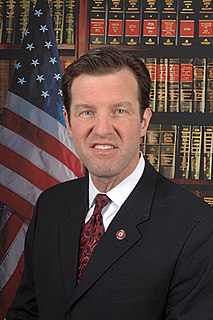A Quote by George W. Bush
I have faith, as I did when I announced my stem-cell decision in 2001, that science and ethics can coexist.
Related Quotes
In science there is something known as a stem cell. A stem cell is an undifferentiated cell which has not yet decided whether it's gonna be a cell of your brain or a cell of your heart or of your finger nail. But science is learning how to coax, how to manipulate, the raw material of life that we call stem cell to become any cell of the body. I think that God is the stem cell of the universe.
The average person doesn't understand what a stem cell is. There's a lack of health literacy in our nation. So the public can't really get into this dialogue because they don't understand the complexity of stem cells, not the faith-based approach, not the ideological or political, but the science behind stem cells.






























